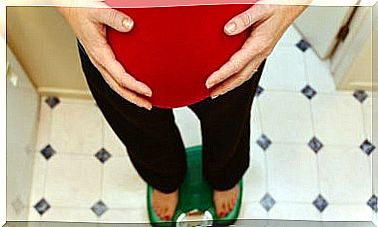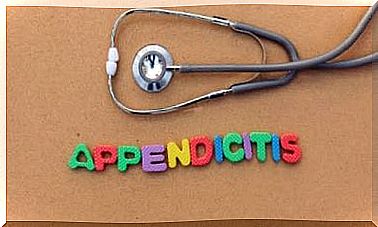The Baby’s Fifth Month: Characteristics And Changes

Being able to move more, become more social, and pay more attention to the outside world are some of the characteristics of the baby’s fifth month. In this article, we will take a look at what is most important during this stage.
In just a few months , your baby has gained enough muscle strength to be able to move more often and with greater ease. It will continue to try to sit up, and may succeed in doing so with a little help, or surrounded by pillows.
One can also observe children’s development in how they relate to others. They now not only want their parents’ attention, but can also seek contact with other people.
With all their senses fully developed, your child will observe and listen to everything that is happening in the environment.
Take the chance to talk to your child. It will start to notice when you talk to it or mention its name. This period is ideal for interaction.
What to expect during the baby’s fifth month
Here are some (though not all) typical characteristics of five-month-old babies.
- Weight gain : When they are a few months old, babies gain about 150 grams in weight per week. According to the World Health Organization WHO, a healthy weight for a five-month-old baby is about 6.8 kg for girls and 7 kg for boys.
- Height : At five months of age, girls should be 63-65 cm tall, and boys should be 65-67 cm tall.
- Strength : When children are five months old, they should be able to hold their heads up for a long time. They will also try to sit or even stand up if you place them on a firm surface.

- Senses : Their sight and hearing have become much sharper in recent months. Your baby is now able to identify where the sound is coming from, and recognize faces. It will even begin to recognize its own name.
- Food : Experts recommend breastfeeding as the only source of nutrition up to six months of age. Between this month and next, you can start introducing food as a supplement. The food should always be finely chopped or mashed as the child does not have any teeth yet.
- Sleep : The child sleeps between 8-10 hours every night, and takes rest periods during the day. It is now much easier to establish a routine.
- Immune system : Your child’s immune system is still developing, so it’s important to follow the vaccination schedule.
Other issues during the baby’s fifth month
Is my child ready to start spending time with pets? If you already had a pet when the baby was born, the pet has probably gotten used to the baby’s presence and getting a little less attention.
Under your supervision, contact with a pet can help your child learn how to treat an animal. However, always make sure that the animal does not harm or frighten your child.
One game that specialists recommend during the baby’s fifth month is to lay it on its back and show it a toy. The baby will make eye contact and extend his hands to take the toy.
Move the toy from one side to the other so that the child turns and moves in different directions. This simple exercise helps to develop the abdominal muscles and stimulate the baby’s senses.
Has the child’s arrival affected your relationship?
The arrival of a new child is a whirlwind of happiness, nervousness and insecurity. As the months go by, however, you get used to taking care of your little one.
You learn, the child grows, and you both become more experienced. This means that it will now be possible to establish certain routines in the home.
It is never a bad idea to relax and devote some time to the relationship, which may have been a bit neglected in recent months.
Leave the child in safe company with your parents or a babysitter and go out to a restaurant, cinema, or at least a short walk.
Charging the batteries and keeping the mood up is good for both you and your baby.









